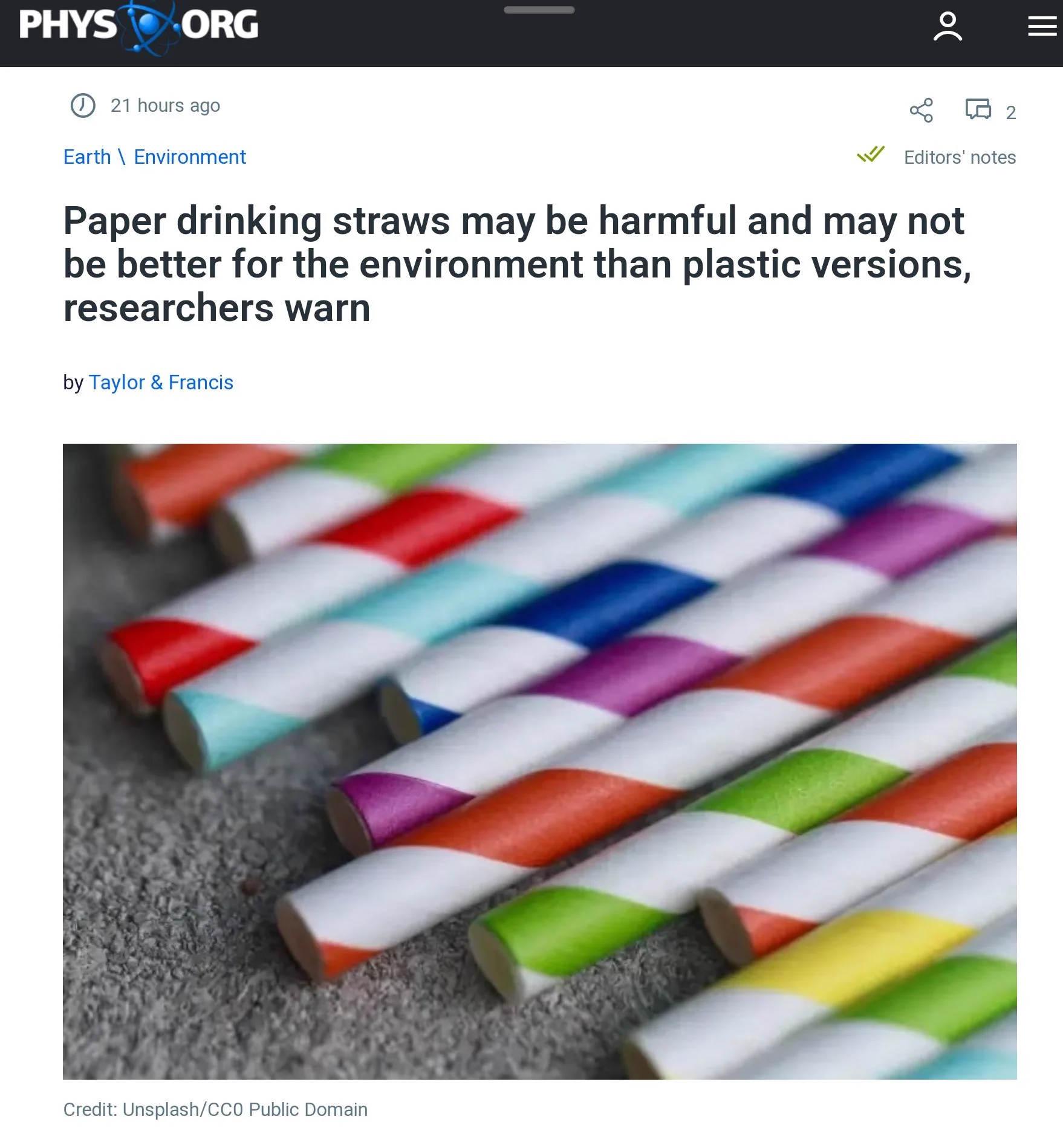https://phys.org/news/2023-08-paper-straws-environment-plastic-versions.html

“Eco-friendly” paper drinking straws contain long-lasting and potentially toxic chemicals, a new study has concluded.
In the first analysis of its kind in Europe, and only the second in the world, Belgian researchers tested 39 brands of straws for the group of synthetic chemicals known as poly- and perfluoroalkyl substances (PFAS).
PFAS were found in the majority of the straws tested and were most common in those made from paper and bamboo, found the study, published in Food Additives & Contaminants.
PFAS are used to make everyday products, from outdoor clothing to non-stick pans, resistant to water, heat and stains. However, they are potentially harmful to people, wildlife and the environment. They break down very slowly over time and can persist over thousands of years in the environment, a property that has led to them being known as “forever chemicals.”
They have been associated with a number of health problems, including lower response to vaccines, lower birth weight, thyroid disease, increased cholesterol levels, liver damage, kidney cancer and testicular cancer.
“Straws made from plant-based materials, such as paper and bamboo, are often advertised as being more sustainable and eco-friendly than those made from plastic,” says researcher Dr. Thimo Groffen, an environmental scientist at the University of Antwerp, who is involved in this study. “However, the presence of PFAS in these straws means that’s not necessarily true.”
A growing number of countries, including the UK and Belgium, have banned sale of single-use plastic products, including drinking straws, and plant-based versions have become popular alternatives.
A recent study found PFAS in plant-based drinking straws in the US. Dr. Groffen and colleagues wanted to find out if the same was true of those on sale in Belgium. To explore this further, the research team purchased 39 different brands of drinking straw made from five materials—paper, bamboo, glass, stainless steel and plastic.
The straws, which were mainly obtained from shops, supermarkets and fast-food restaurants, then underwent two rounds of testing for PFAS. The majority of the brands (27/39, 69%) contained PFAS, with 18 different PFAS detected in total.
The paper straws were most likely to contain PFAS, with the chemicals detected in 18/20 (90%) of the brands tested. PFAS were also detected in 4/5 (80%) brands of bamboo straw, 3/4 (75%) of the plastic straw brands and 2/5 (40%) brands of glass straw. They were not detected in any of the five types of steel straw tested.
The most commonly found PFAS, perfluorooctanoic acid (PFOA), has been banned globally since 2020.
Also detected were trifluoroacetic acid (TFA) and trifluoromethanesulfonic acid (TFMS), “ultra-short chain” PFAS which are highly water soluble and so might leach out of straws into drinks.

